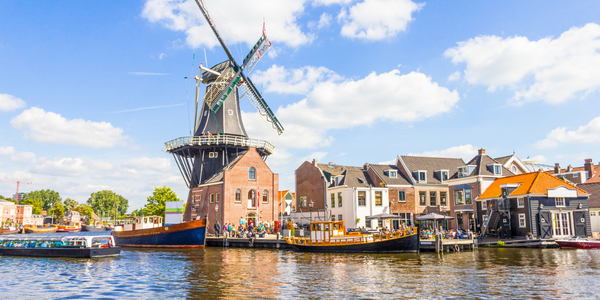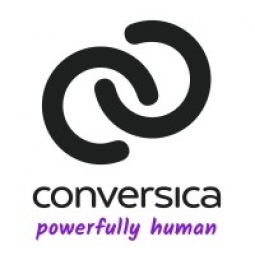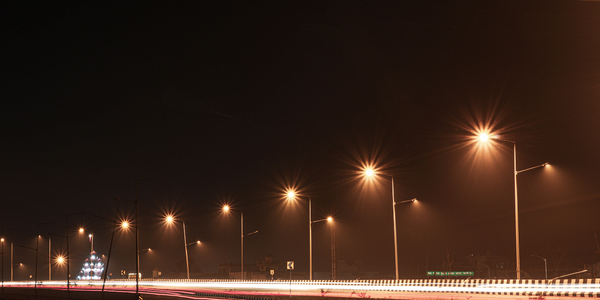Technology Category
- Application Infrastructure & Middleware - Database Management & Storage
- Infrastructure as a Service (IaaS) - Cloud Databases
Applicable Industries
- Cities & Municipalities
- Telecommunications
Applicable Functions
- Procurement
- Sales & Marketing
Use Cases
- Smart City Operations
- Time Sensitive Networking
About The Customer
LA Galaxy is among the most popular American soccer teams with a dedicated fan base. Despite their popularity, the Sales and Marketing teams have their work cut out for them, especially when it comes to ticket sales. The team's primary focus is on converting people in the Los Angeles area into season ticket holders. This is a challenging task given the competitive nature of the Sports and Entertainment industry and the presence of rival teams just 12 miles away. The team has a global fanbase, but the majority of season ticket holders live in and around the team’s immediate area, making them the primary target for conversion from occasional visitors to regular attendees.
The Challenge
LA Galaxy, one of the most popular American soccer teams, faced significant challenges during the pandemic. The team's Sales and Marketing teams were spending too much time chasing leads and fans, and their phone outreach was inefficient. The team's primary focus was to convert people in the Los Angeles area into season ticket holders, a task made difficult by the competitive nature of the Sports and Entertainment industry and the presence of rival teams. The team was also struggling with incomplete contact information for potential leads, with basic details like phone numbers often missing. This lack of information made it difficult for Account Executives to effectively reach out to prospects at scale. The onset of the pandemic further complicated matters, as the industry's reliance on people gathering together was severely impacted.
The Solution
To address these challenges, LA Galaxy turned to Conversica AI Assistant for Conversational Sales. Conversica offered an out-of-the-box solution to collect and validate user contact information while also pursuing and qualifying leads at scale. The AI Assistant, named 'Victoria Campos', was able to confirm phone numbers through Conversica campaigns, enabling LA Galaxy to begin a more robust outreach campaign. Victoria also provided a personalized touch when replying to inquiries, creating a favorable impression that helped fans stay engaged. When the pandemic hit, LA Galaxy used Victoria to promote their camps and clinics, offering prospects a way for their children to participate in safe outdoor soccer camps. This new approach performed remarkably well, allowing LA Galaxy to expand their use of Conversica to other revenue-generating programs.
Operational Impact
Quantitative Benefit

Case Study missing?
Start adding your own!
Register with your work email and create a new case study profile for your business.
Related Case Studies.

Case Study
Turning A Stadium Into A Smart Building
Honeywell created what it called the “intelligent system” for the National Stadium in Beijing, China, turning the venue for the opening and closing events at the 2008 Summer Olympics into a “smart building.” Designed by highly controversial artist Ai Weiwei, the “Bird’s Nest” remains one of the most impressive feats of stadium architecture in the world. The 250,000 square meter structure housed more than 100,000 athletes and spectators at a time. To accommodate such capacity, China turned to Honeywell’s EBI Integrated Building Management System to create an integrated “intelligent system” for improved building security, safety and energy efficiency.
.png)
Case Study
Smart Street Light Network (Copenhagen)
Key stakeholders are taking a comprehensive approach to rethinking smart city innovation. City leaders have collaborated through partnerships involving government, research institutions and solution providers. The Copenhagen Solutions Lab is one of the leading organizations at the forefront of this movement. By bringing together manufacturers with municipal buyers, the Copenhagen Solutions Lab has catalyzed the development and deployment of next-generation smart city innovations. Copenhagen is leveraging this unique approach to accelerate the implementation of smart city solutions. One of the primary focus areas is LED street lighting.

Case Study
Buoy Status Monitoring with LoRa
The Netherlands are well-known for their inland waterways, canals, sluices and of course port activities. The Dutch Ministry of Infrastructure indicates that there are thousands of buoys and fixed items in and near water environments that would profit from IoT monitoring. One of the problems with buoys for example, is that they get hit by ships and the anchor cable breaks. Without connectivity, it takes quite some time to find out that something has happened with that buoy. Not to mention the costs of renting a boat to go to the buoy to fix it. Another important issue, is that there is no real-time monitoring of the buoys at this moment. Only by physically visiting the object on the water, one gains insight in its status.

Case Study
Barcelona Case Study
Barcelona’s heavy traffic and its associated high levels of pollution were the primary factors that motivated some companies and universities to work on strategies for improving traffic in the city centre. Bitcarrier is one of the technologies involved in the In4Mo Project, whose main objective is to develop the applications that form the core of smart mobility, one of the fundamental pillars of the smart city concept.

Case Study
China Mobile Smart Parking
Smart Parking, powered by NB-IoT technology, is making it easier for drivers to find free parking spots. Cities can better manage their parking assets and maximize the revenue available to them as a result. Drivers searching for parking create congestion and pollution by circling and hunting for available parking. Smart Parking services are able to significantly ease these problems by guiding a driver directly to a parking space.








